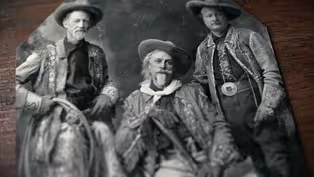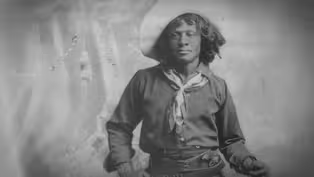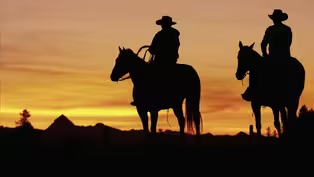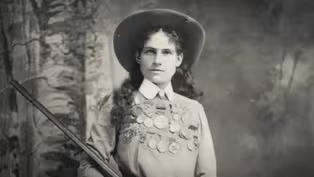
The Homestead Act Spurs Westward Expansion
Clip: Episode 4 | 3m 35sVideo has Closed Captions
The Homestead Act attracted thousands of settlers to The West with 160 acres of free land.
The Homestead Act of 1862 provided that any citizen who had never borne arms against the U.S. government could claim 160 acres of government land as long as they cultivated their plot.
Problems playing video? | Closed Captioning Feedback
Problems playing video? | Closed Captioning Feedback
Iconic America: Our Symbols and Stories with David Rubenstein is a production of Show of Force, DMR Productions, and WETA Washington, D.C. David M. Rubenstein is the host and executive...

The Homestead Act Spurs Westward Expansion
Clip: Episode 4 | 3m 35sVideo has Closed Captions
The Homestead Act of 1862 provided that any citizen who had never borne arms against the U.S. government could claim 160 acres of government land as long as they cultivated their plot.
Problems playing video? | Closed Captioning Feedback
How to Watch Iconic America
Iconic America is available to stream on pbs.org and the free PBS App, available on iPhone, Apple TV, Android TV, Android smartphones, Amazon Fire TV, Amazon Fire Tablet, Roku, Samsung Smart TV, and Vizio.
Buy Now
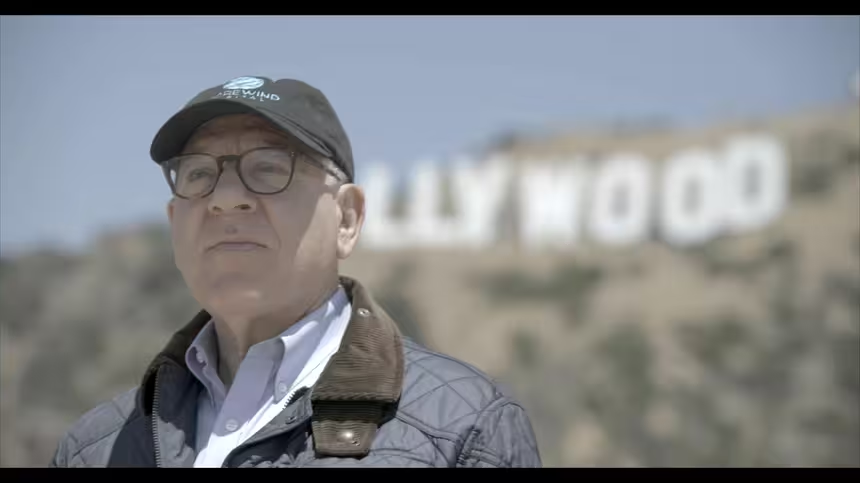
Our Symbols and Stories
David Rubenstein examines the history of America through some of its most iconic symbols, objects and places, in conversation with historical thinkers, community members and other experts. Together, they dive deep into each symbol’s history, using them as a gateway to understanding America’s past and present.Providing Support for PBS.org
Learn Moreabout PBS online sponsorship- Many people had believed that the American cowboy was somebody who would not fight against American expansion, American industrialism, American upper class, but somebody who would then protect their interests more.
The labor movement at the time, this class revolution beginning here in America, really weighed heavily on their minds, but the cowboys, they could be trusted because their fighting spirit was directed not at upper classes like the socialist movement, but was directed more at these forces that were stopping American expansion.
- In the years of the open range, wherever the buffalo could graze, they could graze a cow.
For the most part, it's short grass country.
That means each time a cow takes a bite, there's a huge punch of protein in that.
It's kind of a cattleman's paradise.
Well, it didn't take long for some large cattle barons to try to turn a profit on free land.
- It was basically a get rich quick opportunity and it was all about how do we maximize this resource, which is grasslands, to make money.
And the best way was through beef cattle.
But the Homestead Act is already in effect.
(dramatic music) - [David] The Homestead Act of 1862 provided that any citizen who had never borne arms against the U.S. government could claim 160 acres of government land as long as they cultivated their plot.
(upbeat music) - The Homestead Act broke up the large cattle syndicates and gave any average American a chance to ranch and own our own little piece of America.
And so you fenced it out, built a structure, and it was then yours.
This news traveled around the world that if you immigrate and start a life out there that you could own property in America.
They want the West populated.
So a lot of 'em tried it, a lot of 'em failed.
I'm sure some people died, but my ancestors did it.
(cows bellowing) Great-grandfather came 1925.
My granddad, Charlie's Place, he homesteaded that place.
I feel like it is in the lifeblood of all these Western towns.
People forget that.
Cowboys were the first homesteaders living there, and they were probably a reason the majority of those towns existed.
- With the homesteaders come homes, towns, banks, a civilization, and these grasslands will be covered up.
With the addition of fencing, that changed the cowboy's job to different things.
- They claim that the end of the Wild West is when barbed wire was invented.
The cowboy certainly lived on, but in a different sense.
- And then along comes this figure that nobody really ever heard of before, a cattle drover who would make a deal with whatever that rancher is, wherever he was, and say, "For a dollar a head, "I will drive your cattle to market."
That's not really very exciting.
So how do we make him more exciting?
We make him a hero.
We heroicize him.
And, of course, the popular culture got ahold of that, stereotyped that a cowboy was a gunman and decided that was the symbol.
And that's a disservice.
It's a disservice to history and it's a disservice to us.
It really is.
And so I get pretty pretty worked up about that because the real cowboys in most cases, we'll never know their names.
Buffalo Bill Helps Spread the Cowboy Mystique
Video has Closed Captions
Clip: Ep4 | 3m 12s | Wild West Shows led to a skewed perspective of the role of real cowboys in America. (3m 12s)
Video has Closed Captions
Preview: Ep4 | 31s | The cowboy is the quintessential American — fiercely independent, brave and laconic. (31s)
Philip Morris' Marlboro Man Lassoes a Hit Ad Campaign
Video has Closed Captions
Clip: Ep4 | 1m 3s | The appeal and success of the Marlboro Man cigarette ad campaigns spanned decades. (1m 3s)
Why Did Cowboy Movies Leave Women Out of the Picture?
Video has Closed Captions
Clip: Ep4 | 1m 55s | Westerns downplayed the role that women and minorities played in settling The West, (1m 55s)
Providing Support for PBS.org
Learn Moreabout PBS online sponsorshipSupport for PBS provided by:
Iconic America: Our Symbols and Stories with David Rubenstein is a production of Show of Force, DMR Productions, and WETA Washington, D.C. David M. Rubenstein is the host and executive...
